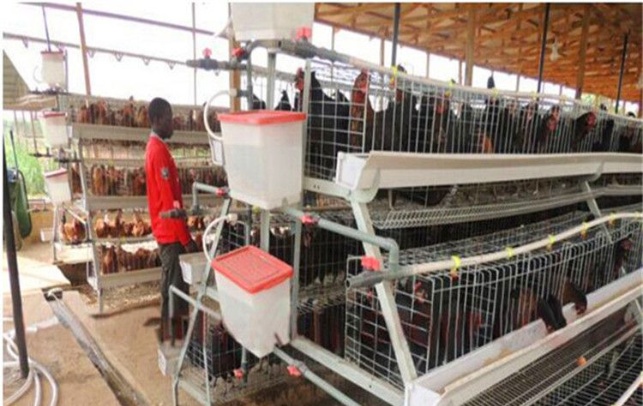Layer cages for sale and design in South Africa
Time : 2024-05-19
Poultry farming in South Africa has witnessed a transformative shift with the adoption of innovative laying hen cage designs. These cages not only ensure the well-being of hens but also enhance operational efficiency and sustainability in the industry. Let’s delve into the key aspects of laying hen cages, their design considerations, and their availability in the South African market.
Designing Ergonomic and Efficient Laying Hen Cages
Laying hen cage design plays a pivotal role in optimizing space utilization, promoting bird welfare, and facilitating ease of management for farmers. In South Africa, manufacturers prioritize ergonomic features and innovative solutions to meet the diverse needs of poultry farmers across the country.
Features of Modern Laying Hen Cage Designs
- Comfortable Nesting Areas: Laying hen cages are equipped with comfortable nesting areas that mimic natural environments, encouraging hens to lay eggs in a stress-free setting.
- Integrated Feeding and Watering Systems: Advanced cage designs incorporate automated feeding and watering systems, ensuring consistent access to food and water for hens while minimizing labor requirements for farmers.
- Manure Management Systems: The integration of efficient manure removal systems can promote cleanliness and sanitation within poultry facilities.
Meeting Industry Standards: Laying Hen Cages for Sale in South Africa
The availability of high-quality laying hen cages for sale in South Africa reflects the industry’s commitment to meeting stringent welfare standards and promoting sustainable farming practices. Farmers have access to a diverse range of cage options tailored to their specific requirements and production goals.
Key Considerations for Purchasing Laying Hen Cages
- Quality Construction: Laying hen cages for sale in South Africa are constructed from durable materials such as galvanized steel or corrosion-resistant plastics, ensuring longevity and reliability in diverse climatic conditions.
- Customization Options: Manufacturers offer customization options to accommodate varying flock sizes, farm layouts, and management preferences, allowing farmers to optimize space utilization and operational efficiency.
- Compliance with Regulations: Cage designs adhere to regulatory standards and industry guidelines governing poultry welfare and housing practices, ensuring ethical and responsible farming operations.

Advancing Sustainability with Laying Cages in South Africa
The adoption of laying cages in South Africa represents a significant step towards enhancing sustainability in poultry farming. These cages promote efficient resource utilization, minimize environmental impact, and contribute to the overall resilience of the agricultural sector in the region.
Environmental Benefits of Laying Cages
- Reduced Environmental Footprint: Laying hen cages facilitate efficient waste management and manure composting, minimizing environmental pollution and resource depletion associated with traditional farming methods.
- Optimized Land Use: Compact cage systems maximize the use of available land resources, allowing farmers to produce higher yields in smaller footprints and safeguarding natural habitats and ecosystems.
- Water and Feed Efficiency: Automated feeding and watering systems in laying hen cages optimize water and feed usage, reducing waste and conserving resources in poultry production.
Conclusion: Embracing Innovation for Sustainable Poultry Farming
In conclusion, the adoption of laying hen cages in South Africa underscores the industry’s commitment to innovation, efficiency, and animal welfare. By embracing ergonomic design principles, meeting industry standards, and promoting sustainability, laying hen cages play a pivotal role in shaping the future of poultry farming in the region. Thanks to ongoing collaboration between farmers, manufacturers and regulators, South Africa’s poultry industry is also growing and progressing towards a more sustainable and resilient future.











